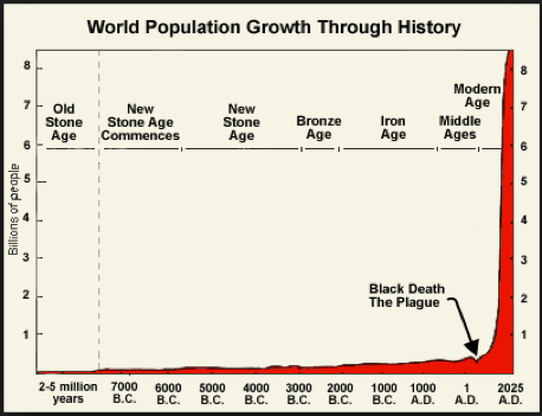|
The idea of The Commons was originally formulated as an economics theory written by Victorian economist William Forster Lloyd in 1833, but the idea progressively became known as the idea of the tragedy of the commons through Garrett Hardin’s influential 1968 essay regarding overpopulation. Hardin’s essay described the tragedy of the commons as a shared resource system (“commons”) where the tragedy became an individual’s driving force behind their inherent selfishness, pushing them to utilize the commons to their own greatest benefit and according to their own self-interest rather than think of the inevitable unintended and undesired consequences of their own actions amongst the community. The theory rationalizes that “as the demand for the resource overwhelms the supply, every individual who consumes an additional unit directly harms others who can no longer enjoy the benefits. Generally, the resource of interest is easily available to all individuals; the tragedy of the commons occurs when individuals neglect the well-being of society in the pursuit of personal gain.” {Source 2-5} Hardin’s essay has become influential with the recent problem of overpopulation. In the last five-hundred years alone, the population has been growing at a nearly exponential rate (Figure 1). The tragedy of the commons is often cited in connection with an attempt at creating sustainable developments. It has posed the possibility of uniting economic growth with environmental protection but has also brought recent debates over global warming and climate change into the picture. The overpopulation issue also brings along a myriad of other uncertainties regarding some of the shared commons (i.e the atmosphere, oceans, land, agricultural space, water, food, and shelter.) {Source 2-5} Through Hardin’s 1968 Essay we must construct some overarching conclusions which can potentially help our current “Commons” Problem.
1. The world is biophysically finite, meaning that as the population continues to grow, the resource pool decreases per capita. There will be fewer resources that each person must share. Ideally, humans must learn to “both stabilize population, and make hard choices about which ‘goods’ are to be sought.” {Source 1} 2. Overpopulation is one of the biggest examples of the tragedy of the commons, with the earth being our “commonly-held ‘pool’.” Hardin's gloomy assumption of human’s inherent selfishness and self- centered rationale could lead to two potential outcomes. One of these outcomes is self-realization, which will lead those who hold this mentality to think that we must act in a more selfless manner. The other outcome is indifference, which will lead those who hold this mentality to think that we are only here to exploit the commons. Hardin states that neither a utilitarian ideology nor a laissez-faire system solves overpopulation, but we could instead look at the argument of utilitarianism. Under utilitarianism, it is understood that overpopulation will always be counterproductive in this current day and age without current population size and work to combat over-population in a way where the maxim “the greatest good for the greatest people” becomes the greatest good for current and future peoples. {Source 1} 3. “The ‘commons’ system for breeding must be abandoned,” and something must be enforced to restrain individual reproduction to a certain extent. Decreasing reproduction through individual conscience is the ideal in creating fewer people whose conscience is set in appealing the overall population, and the earth. This current population must realize that “sacrificing freedom to breed will obtain for us other more important freedoms which will otherwise be lost” later on for ourselves or for our children. {Source 1} 4. The biggest problem we are facing is gaining peoples' consent to a system of coercion for combatting these current overpopulation issues. “People will only consent if they understand the dire consequences of letting the population growth rate be set only by each individuals' choices”. Each of Hardin’s proposed problems regarding the tragedy of the commons have great potential outcomes, but we must all work together to work on our shared “Commons” together by protecting this planet and our home. Source 1: http://faculty.wwu.edu/gmyers/esssa/Hardin.html Source 2: http://tragedy.sdsu.edu/ Source 3: https://en.wikipedia.org/wiki/Tragedy_of_the_commons Source 4: http://www.investopedia.com/terms/t/tragedy-of-the-commons.asp Source 5: http://www.academia.edu/9761177/Utilitarianism_and_The_Tragedy_of_the_Commons Source 6: http://www.susps.org/overview/numbers.html
1 Comment
Lauren
9/11/2016 10:12:21 am
What do you think we should do about overpopulation and how to stop it from happening?
Reply
Leave a Reply. |
Categories
All
Archives
March 2024
|

 RSS Feed
RSS Feed
